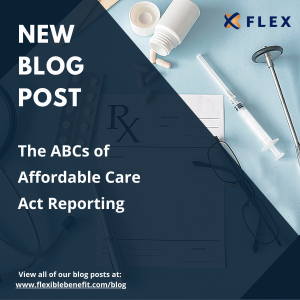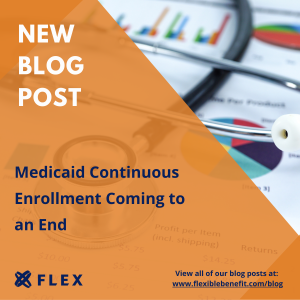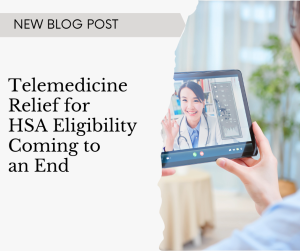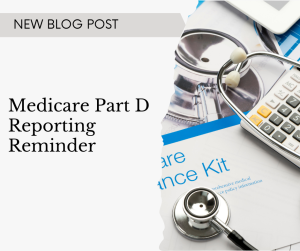Benefits Buzz
Reporting requirements from the Affordable Care Act (ACA) are rapidly approaching. Health Insurance Marketplaces, health insurance carriers, and employers may be subject to the reporting. The reporting is due February 28, 2023 if filing manually and by March 31, 2023 if filing electronically. Electronic filing is required for entities that are filing 250 or more forms.
Let’s get to the ABCs of the reporting.
At the start of the COVID-19 pandemic in 2020, Congress enacted a law called the Families First Coronavirus Response Act (FFCRA). One of the provisions of the FFCRA included a requirement that state Medicaid programs keep individuals continuously enrolled in coverage through the end of the month in which the COVID-19 public health emergency (PHE) ends. In return, state Medicaid programs have received enhanced federal funding.
The COVID-19 national public health emergency is set to expire on January 11, 2023; however, the Biden administration is expected to issue another extension of the national public health emergency. It is unknown at this time when the national public health emergency will be declared over.
Health Savings Accounts (HSAs) have become a popular way to pay for out-of-pocket medical expenses and/or save for future medical expenses. HSAs are considered by many to be the “unicorn” of financial accounts. The primary reason for this claim to fame are the triple tax advantage features of HSAs. Contributions are taxdeductible, earnings and interest grow tax-deferred, and withdrawals are tax-free provided the money is used for an out-of-pocket medical expense.
Many telemedicine programs disqualify a person from making contributions to a Health Savings Account (HSA). Generally, telemedicine programs that have a $0 copay or low dollar copay will eliminate HSA eligibility. Typically, a telemedicine program must apply the full cost of the virtual visit to the deductible, or it can only cover limited benefits (e.g., preventive-only services, dental-only services) to preserve HSA eligibility.
Annual Medicare Part D reporting is required for all employers who provide health benefits with prescription drug coverage. The reporting is an online filing to the Centers for Medicare & Medicaid Services (CMS), and it lets CMS know if the prescription drug coverage available on the employer’s health plan is “creditable.”







